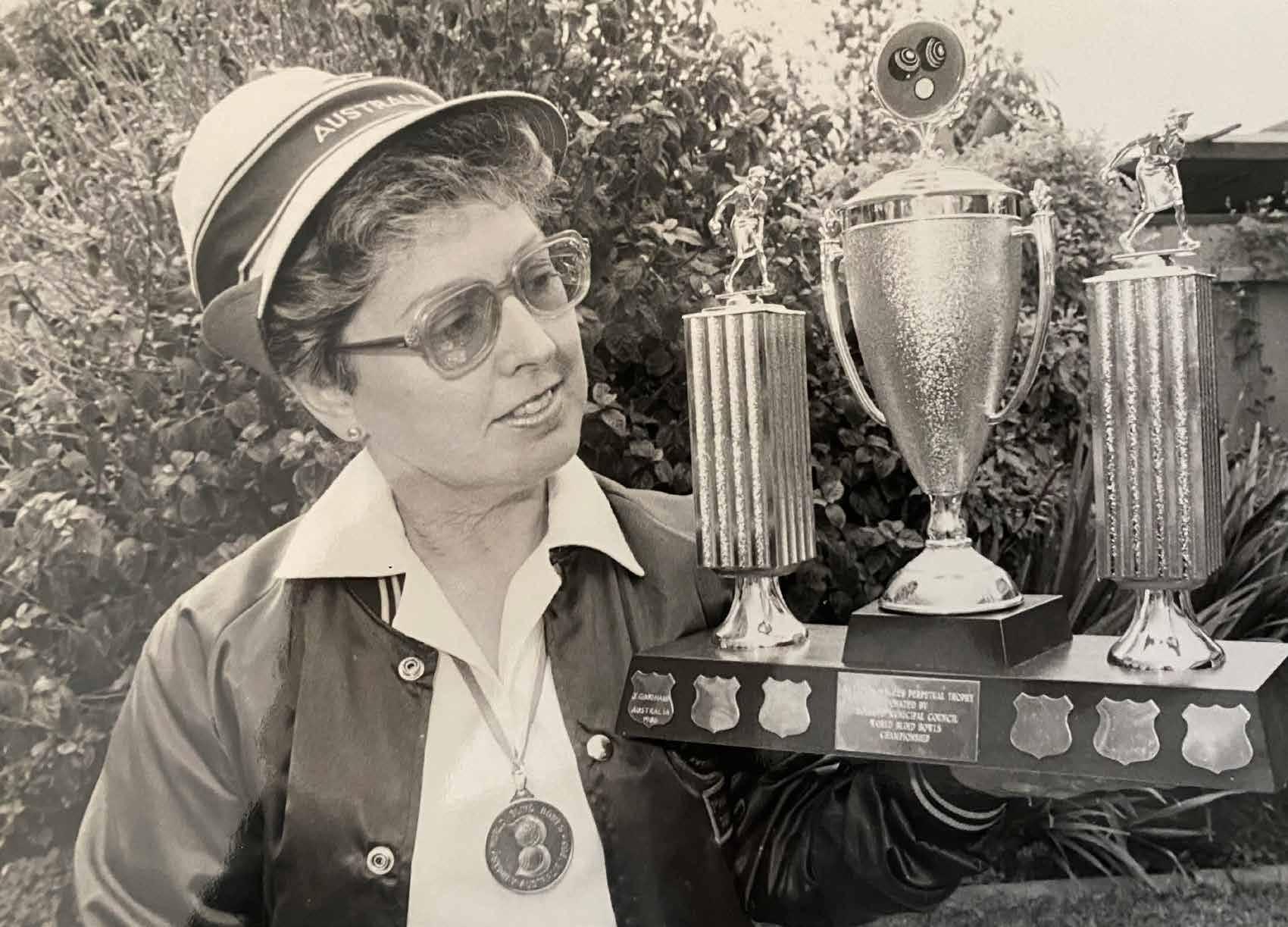
6 minute read
Cover Story
The lawn bowls trailblazer trailblazer When reading the life stories of top sportspeople, they have often overcome great adversity to make it to the top of their sport.
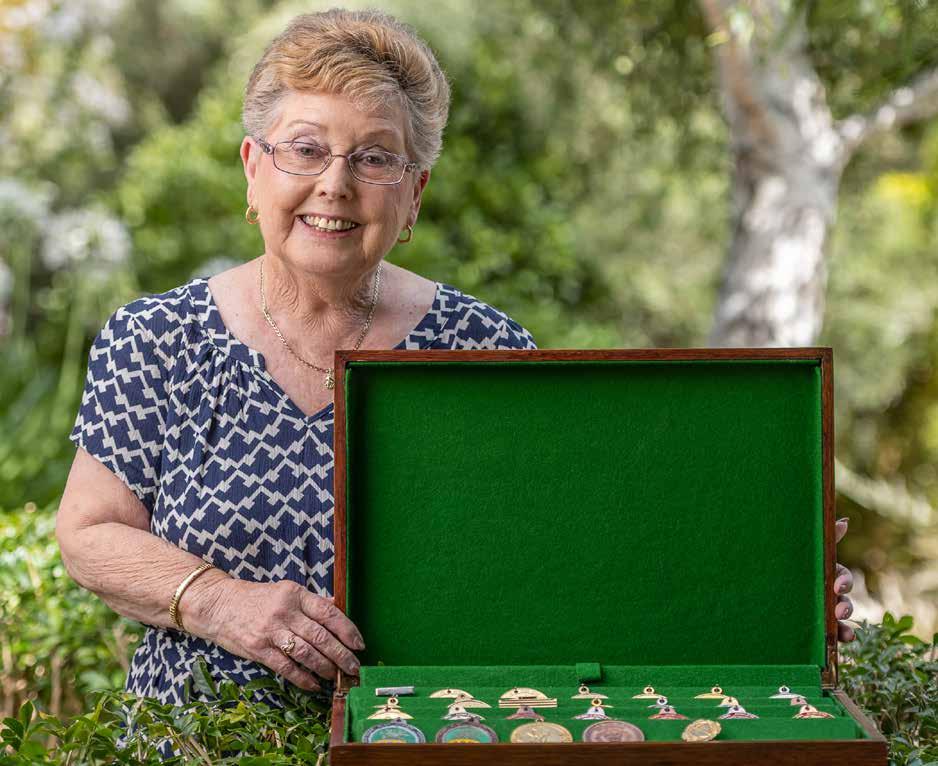
Advertisement
For June Goodhand, who represented Australia and had great success on the world stage in lawn bowls, the adversity she overcame was playing the game she loved with profound vision impairment. “Mum and Dad both had the gene for Stargardts disease. They had six children and the eldest and the youngest – me – were born with the gene. It means I have no central vision at all – when I look at people straight on I can see their outline but no features,” June explained. June was one of Australia’s top blind lawn bowlers from 1979 to 1994. At the height of her career, she won gold at three successive World Blind Bowls and carried the Australian fl ag at the opening ceremony of the 1994 Commonwealth Games in Canada. It was the fi rst Commonwealth Games to feature a para-sport program. June has shared her story on how she led the charge for blind bowls to begin in South Australia, her triumphs on the bowling green, and her new love for singing.
tell us how You championed to have a blind South Australian lawn bowls team.
I often frequented the Royal Society for the Blind (RSB) in Gilles Plains. I did some courses there – pottery, typing, kung fu, in fact I was on the Midday Show demonstrating kung fu… but that’s a whole other story! During my time at RSB I noticed that all the other states had a blind lawn bowls team. So, my friend Cath – who I'm still friends with now after all these years – approached the RSB Welfare O cer. We said, we wanted to form a club so we can go to the national titles and represent our state, even though we had never played before! Luckily the Welfare O cer had sway with the Director and shortly after he told us, ‘It’s a goer’.
What was the process of starting a club from scratch?
Firstly, we formed a committee, and then we did a lot of fundraising because in those days we had to pay our own way for accommodation, uniforms, entry fees, our airfares. Cath and I would go down to West Lakes shopping mall on the bus to sell ra e tickets to raise money. Throughout the years we had new members joining all the time. There were up to 20 club members at any one time. We also decided to not just be in the blind bowlers’ club, but also to go into the community and join other local bowling clubs.
Why was this important to you?
Just for the fact to show people that we could do it as well as they could. In 1993, I won gold for the state championships fours playing for Broadview Bowling Club. This was a sighted team, I was lead, and it is an achievement I am very proud of.
how do you play lawn bowls with vision impairment?
All blind bowlers have a sighted helper, someone who themselves is a good bowler. For the fi rst bowl, the sighted helper would tell you the length of how far away the kitty was, and whether it was on the narrow or wide side. You’d then move your feet accordingly. As the game progressed, your helper would move to the clock method. For example, telling you there’s a bowl at 71 feet at 1 o’clock and then you’d get this picture in your head. They’d tell you if you needed to go around an opponent’s bowl, so you’d make your shot wider, or if you were going to take a bowl out, so you could put more pace on it.
June, pictured centre in her Australian uniform.
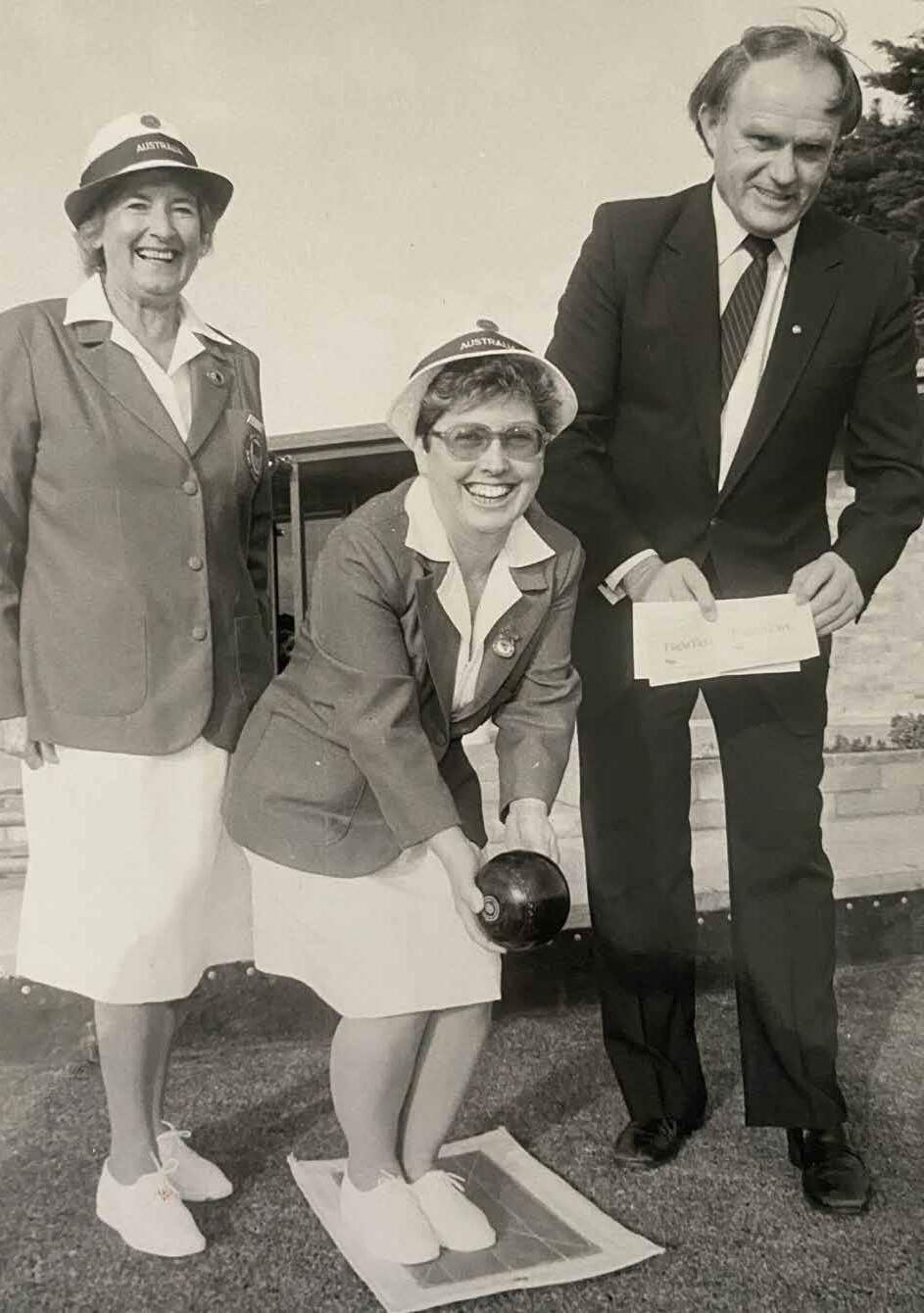
You also have to put your faith in your sighted helper and be good at following instructions.
When did you start achieving success in your own game?
Well, I had only been playing lawn for three months and the club went to Sydney to compete and I won a silver medal in the singles at the National Titles, and then it just went on from there. I travelled to Zimbabwe, Canada and New Zealand. In New Zealand we taught the blind bowlers our methods of playing and soon they had success.
I took the opening ceremony and leading out the team in my stride. I couldn’t see anything in detail, but I knew the stands were full, and the atmosphere
June, pictured far left, carrying the Australian fl ag at the 1994 Commomwealth Games.
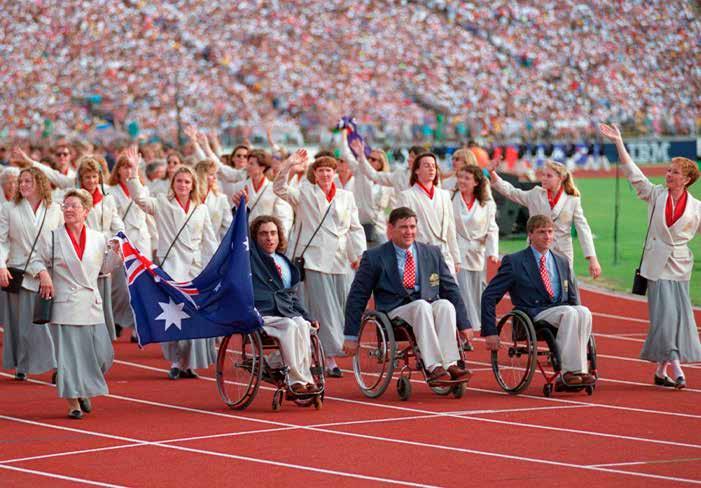
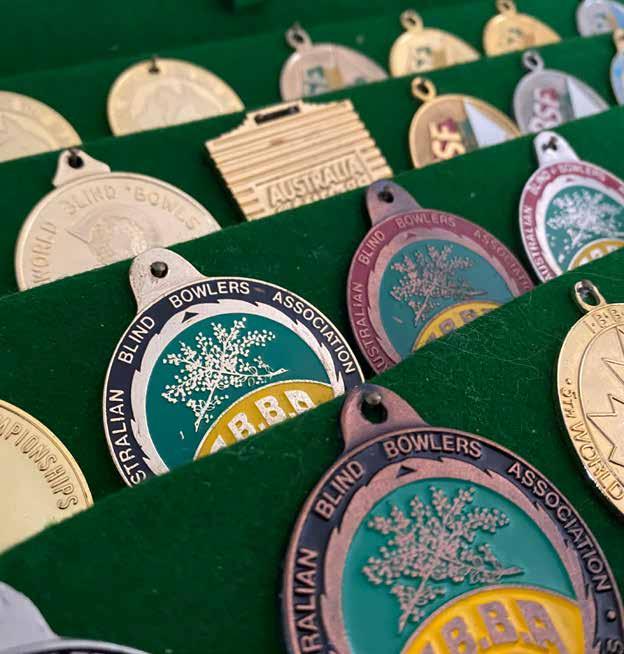
was wonderful. I never got nervous or anything like that. I just went along and did what I had to do. My husband and our children weren’t able to come to the Games, but they were very proud of what I was achieving. Devastatingly, the Commonwealth Games was the last time I played lawn bowls. For a few years leading up to the Games I had osteoarthritis all the way from my neck to my lower back. The previous year at the World Games, on the same green as I was playing on at the Commonwealth Games, halfway through that game my back went. A chiropractor was able to fi x it and I went onto win gold. But at the Commonwealth Games, the doctors and physiotherapist said I couldn’t go on, so I had to retire. It was devastating. But when you’re injured there’s very little you can do.
And after lawn bowls, what bRought you joy?
Because I couldn’t play lawn bowls I was always thinking, what else can I do? Then one day I got a brochure from ACH Group which had all the social experiences o ered, and the choir listed. I had always liked singing at school. Paul Sinkinson, our Choir Director, he's just absolutely wonderful. I used to have all the song lyrics printed out in big block letters on pieces of paper, which made it hard to fl ip between pages when we changed songs. Paul said to me one day, ‘June, why don't you get yourself an iPad? I'll upload all the songs for you.’ Now I have an iPad with all the lyrics on it in large font. It makes it so much easier to follow and sing along.
What are you most proud of?
I'm a very determined person. People give me compliments all the time and say, ‘I don't know how you do it, June’. But when you've grown up with little sight, you don't know anything else.










